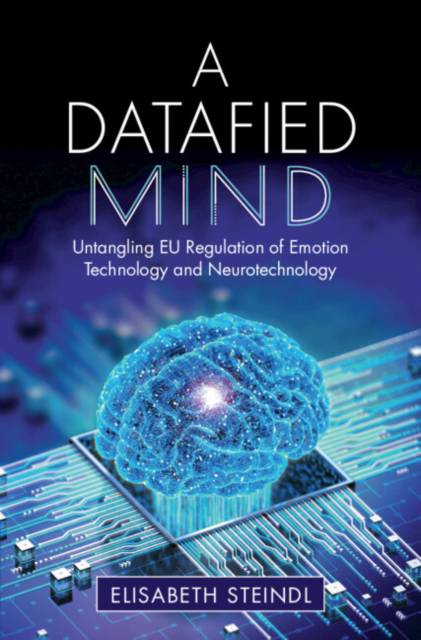
- Afhalen na 1 uur in een winkel met voorraad
- Gratis thuislevering in België vanaf € 30
- Ruim aanbod met 7 miljoen producten
- Afhalen na 1 uur in een winkel met voorraad
- Gratis thuislevering in België vanaf € 30
- Ruim aanbod met 7 miljoen producten
Zoeken
A Datafied Mind
Untangling EU Regulation of Emotion Technology and Neurotechnology
Elisabeth Steindl
Paperback | Engels
€ 43,45
+ 86 punten
Uitvoering
Omschrijving
The fast-paced evolution of emotion technology and neurotechnology, along with their commercial potential, raises concerns about the adequacy of existing legal frameworks. International organizations have begun addressing these technologies in policy papers, and initial legislative responses are underway. This book offers a comprehensive legal analysis of EU legislation regulating these technologies. It examines four key use cases frequently discussed in media, civil society, and policy debates: mental health and well-being, commercial advertising, political advertising, and workplace monitoring. The book assesses current legal frameworks, highlighting the gaps and challenges involved. Building on this analysis, it presents potential policy responses, exploring a range of legal instruments to address emerging issues. Ultimately, the book aims to offer valuable insights for legal scholars, policymakers, and other stakeholders, contributing to ongoing governance debates and fostering the responsible development of these technologies.
Specificaties
Betrokkenen
- Auteur(s):
- Uitgeverij:
Inhoud
- Aantal bladzijden:
- 280
- Taal:
- Engels
Eigenschappen
- Productcode (EAN):
- 9781009671651
- Verschijningsdatum:
- 9/10/2025
- Uitvoering:
- Paperback
- Formaat:
- Trade paperback (VS)
- Afmetingen:
- 152 mm x 229 mm
- Gewicht:
- 308 g

Alleen bij Standaard Boekhandel
+ 86 punten op je klantenkaart van Standaard Boekhandel
Beoordelingen
We publiceren alleen reviews die voldoen aan de voorwaarden voor reviews. Bekijk onze voorwaarden voor reviews.








